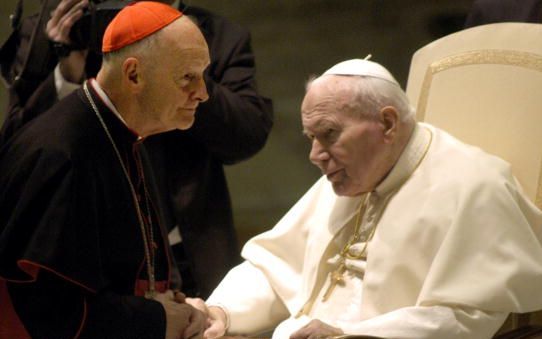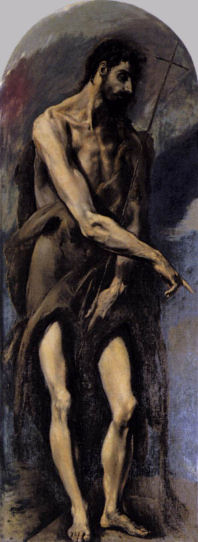
Things have come around in a circle. We talked about Jairus the synagogue official and his twelve-year-old daughter three summers ago–in the lovely little parish churches of St. Francis and St. Joseph. Shortly after that, I had to go to Roanoke. Now, praise God, I’m back as the shepherd of Franklin and Henry counties. And we’re talking about Jairus and his daughter again. [Spanish]
That was a World-Cup-Soccer summer, too—the summer of 2015. The women’s. And we won it, the USA.
Now, we don’t know if Jairus’ twelve-year-old daughter played soccer. We do know, from the end of the story, that she had a twelve-year-old-soccer-player’s appetite. We also know that the girl’s father loved her. He refused to accept the apparent death sentence her illness had imposed on her. He wanted to continue to help her grow up.
As his daughter lingered on her sickbed, Jairus found himself surrounded by well-meaning Debbie Downers from all over the neighborhood. O, alas, alas! She’s dying! Woeful tidings! Lamentations! What a hopeless, cruel world we live in!
Maybe Jairus simply got annoyed with the weepers and the wailers. He got up and left the house. He strode off to look for the famous Nazarene rabbi, who had just returned to Capernaum from a visit to the far shore of the Sea of Galilee.
 Jairus found Christ and begged Him to come to his home. “Lay hands on my daughter, and she will get well and live.”
Jairus found Christ and begged Him to come to his home. “Lay hands on my daughter, and she will get well and live.”
Now, why did Jairus say this to Jesus? Did Jairus know what we know? Namely, that this wandering rabbi had the omnipotent power to form the heavens and the earth out of nothing? To knit together little girls and boys in their mothers’ wombs? So he could certainly save the girl from death?
Somehow, at least some part of Jairus did know. He believed in the Nazorean. Jairus appealed to this poor, dusty former-carpenter—appealed to him as if he were appealing to God. I think we can imagine the look that Jairus gave Jesus. Jairus had left the den of weeping and wailing that his home had become. He had stepped out into the light of day, because he refused to give in to despair. He wanted to keep fathering his daughter. He looked at Jesus with eyes that said: I have hope, because You have the power of life. Help me. Help us. Help our family.
Then the bad news came from the house: The little bundle of energy has lost the light from her eyes. She’s dead.
Now Jairus’ hope was about to falter. Maybe this is a meaningless world after all? But Christ returned Jairus’ gaze.
‘You had faith before. Hold on to it. You are dealing here with no mere traveling Torah expert. I am the Alpha and the Omega, the Morning Star and the eternal Word. I am the Giver of Life. I love your daughter even more than you do.’
Jairus believed. He did not say, ‘Oh, no, teacher. It’s over. Let’s both go home. And I’ll start making funeral arrangements.’ No. Jairus believed that the girl who could eat her way through four or five pitas at one sitting, and who had a question about everything, and who loved to run around chasing the chickens—he believed what the Teacher said about her: She will live.
At that moment, dear brothers and sisters, we can find in Jairus something close to the epicenter of our own Christian faith. Because we believe in the Gospel of Life. We believe that God wills not that we should die, but that we should live. We believe that life and love have a meaning, an eternal meaning in God.
 We look at the earth and the sky; we see the people we care about around us; we honor the memory of those who gave us our inheritance. And we know: A power that gives life made everything. He wills a triumph of life. He loves with a life-giving generosity that never runs out. Death and darkness try to snuff out the power of life. But springtime comes.
We look at the earth and the sky; we see the people we care about around us; we honor the memory of those who gave us our inheritance. And we know: A power that gives life made everything. He wills a triumph of life. He loves with a life-giving generosity that never runs out. Death and darkness try to snuff out the power of life. But springtime comes.
People outside the Church think that our Catholic code of sexual morality and family life doesn’t make sense. They think the Catholic sexual rules cramp your style, limit your freedom, make you less of a person.
A huge irony, since denying the religious aspect of sex actually means failing to honor your own origins. We all come from that moment when a man and woman embraced in the way of marriage. That’s where we are all “from.” And it’s a holy place to be from. It’s where Jairus’ daughter came from, where all God’s sons and daughters are from.
This year we mark the fiftieth anniversary of Pope Paul VI’s solemn declaration that artificial contraception, condoms, birth-control pills, etc., have no place in the life of a Christian. Because the life of a Christian means believing in, and co-operating with, the Lord and Giver of Life, Who governs sex and marriage the way He does for His own very good reasons.
The entire sexual morality of the Catholic Church proceeds from this idea. There is nothing arbitrary or constricting about Christian chastity, inside or outside of marriage. Masturbation, pornography, sex outside marriage, homosexual acts, abortion, artificial fertilization, etc.—all of this is wrong for one precise reason: Because every human being always needs to be right where Jairus was spiritually when He looked at God and begged His help. And God looked back at him. And helped.
Jairus knew, at that moment: This is holy business, this business of marrying and having children and raising them. And God comes into the middle of it, to make it good. To give life. To fill the world with girls and boys who play soccer, and eat a lot, and spill stuff. And who fill our world with joy.

 So: This week I bit the bullet and rented the movie 2015 “Spotlight.” I had studiously avoided the film until now. It tells the story of the 2001-2002 Boston Globe investigation of sexual abuse of minors by Boston priests.
So: This week I bit the bullet and rented the movie 2015 “Spotlight.” I had studiously avoided the film until now. It tells the story of the 2001-2002 Boston Globe investigation of sexual abuse of minors by Boston priests.


 Three. Like no one else, St. John can teach us about what Christ’s Church is. A couple of points on this.
Three. Like no one else, St. John can teach us about what Christ’s Church is. A couple of points on this. Professor Cathleen Kaveny wants to see it differently. She has written a
Professor Cathleen Kaveny wants to see it differently. She has written a  Careful Catholic bio-ethical thinking long ago fully grasped this at its depths. Turning the “right to life” of the unborn child into some kind of absolute value leads you to an unpleasant place: Mother Nature Herself does not respect this right.
Careful Catholic bio-ethical thinking long ago fully grasped this at its depths. Turning the “right to life” of the unborn child into some kind of absolute value leads you to an unpleasant place: Mother Nature Herself does not respect this right.

 Nota Bene. I
Nota Bene. I 
 In 2013, President Obama made Comey the head of the FBI. Comey writes about how he undertook to make the organization more open and communicative, a place where everyone could believe in the cause.
In 2013, President Obama made Comey the head of the FBI. Comey writes about how he undertook to make the organization more open and communicative, a place where everyone could believe in the cause. Testifying before Congress in early 2017, Comey said that he felt “nauseated” at the thought that his public statements of 2016 somehow affected the outcome of the presidential election.
Testifying before Congress in early 2017, Comey said that he felt “nauseated” at the thought that his public statements of 2016 somehow affected the outcome of the presidential election.